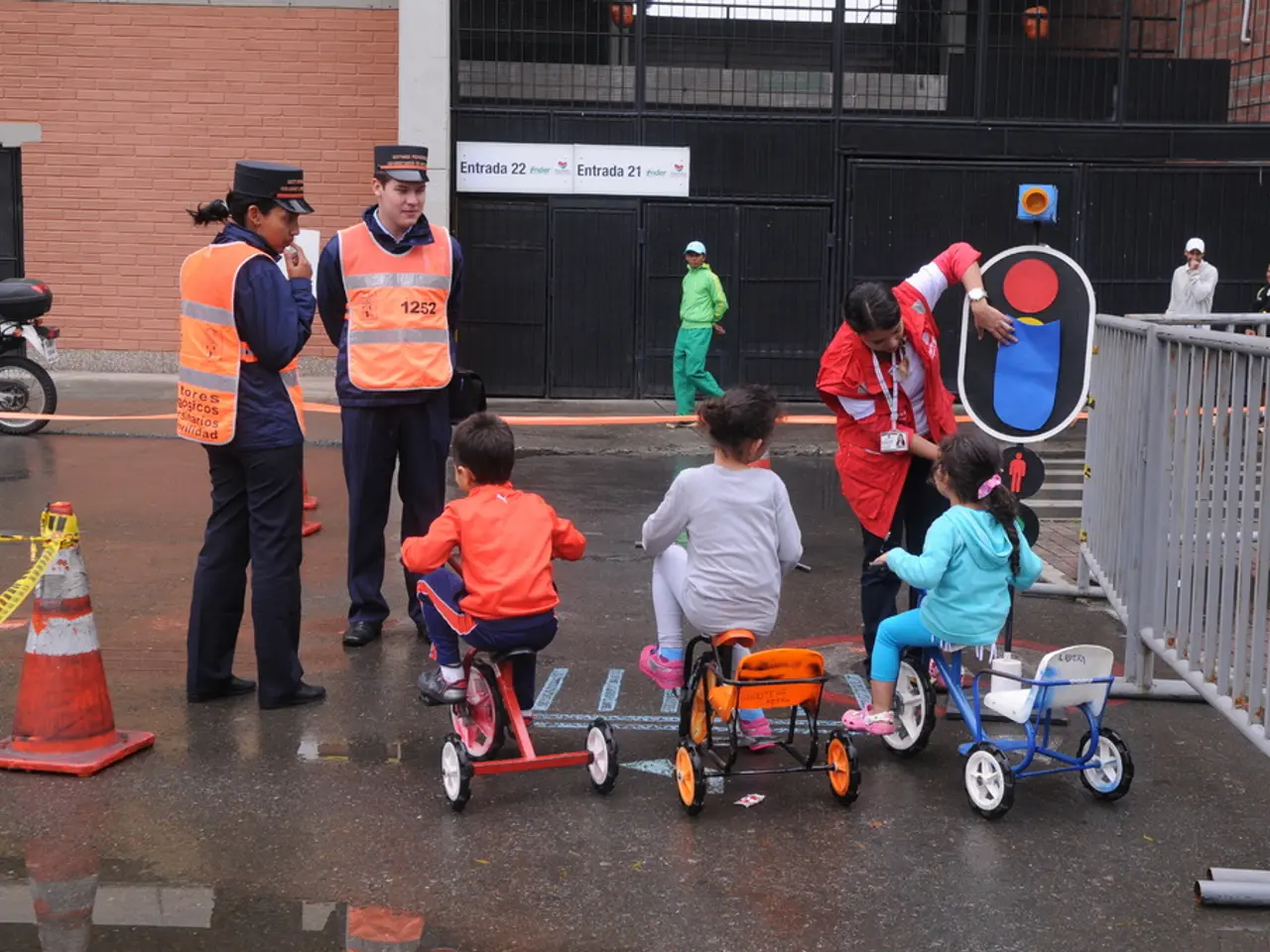"Weekly Child Deaths in Road Traffic: German Traffic Watch Demands Increased Mobility Education in Children's Daily Routines"
In Germany, the German Road Safety Association (DVW) has called for increased traffic and mobility education for children, as the safety of young ones on the roads remains a significant concern. Kirsten Luhmann, the president of the Deutscher Verkehrssicherheitsverein e.V., has highlighted that a child dies in traffic every week in the country.
According to recent statistics, around 40% of fatal accidents involving children occurred when they were on foot. This underscores the importance of educating children about safe behaviour around traffic from an early age.
Mobility education is crucial in preparing children for the challenges of traffic and strengthening their safety and independence. It is not just about teaching them the rules of the road, but also about fostering their motor skills and physical development. Scooters, balance bikes, and bicycles play a central role in this process, as they help in motor development and effective traffic education.
In many cycling clubs, children can earn their "Kids Bike Diploma" around International Children's Day. This diploma is suitable for all children who can already ride a bike and is particularly suitable for the primary school age group. The diploma serves as a testament to their understanding of basic traffic rules and their ability to navigate the roads safely.
In addition, many kindergartens and primary schools implement mobility education projects regularly. These projects often involve practical activities such as joint school route training, which allows children to gain independence and valuable experiences.
Playing, climbing, running, and dancing also promote motor development and form the basis for safe participation in traffic. These activities not only help children develop their physical skills but also instil a sense of confidence and awareness around traffic.
The DVW and the cycling association German Cycling are working together to teach unskilled children the basics of safe cycling. Volunteers from road safety associations also visit kindergartens, organise traffic safety days, and advise parents and educators on how to involve their children in their mobile daily life and teach them simple rules of behaviour.
However, Kirsten Luhmann has questioned whether the necessary consideration for children's skills and special needs in traffic is being met. In 2024, 53 children under the age of 15 died in traffic accidents, which is 9 more than the previous year. An equal number of children died as passengers in a car. In the same year, 2871 children in this age group were seriously injured in traffic accidents.
Luhmann emphasised that mobility education should be a regular part of children's daily lives. By teaching children about traffic safety from an early age, we can help reduce the number of accidents and ensure a safer future for our children on the roads.




